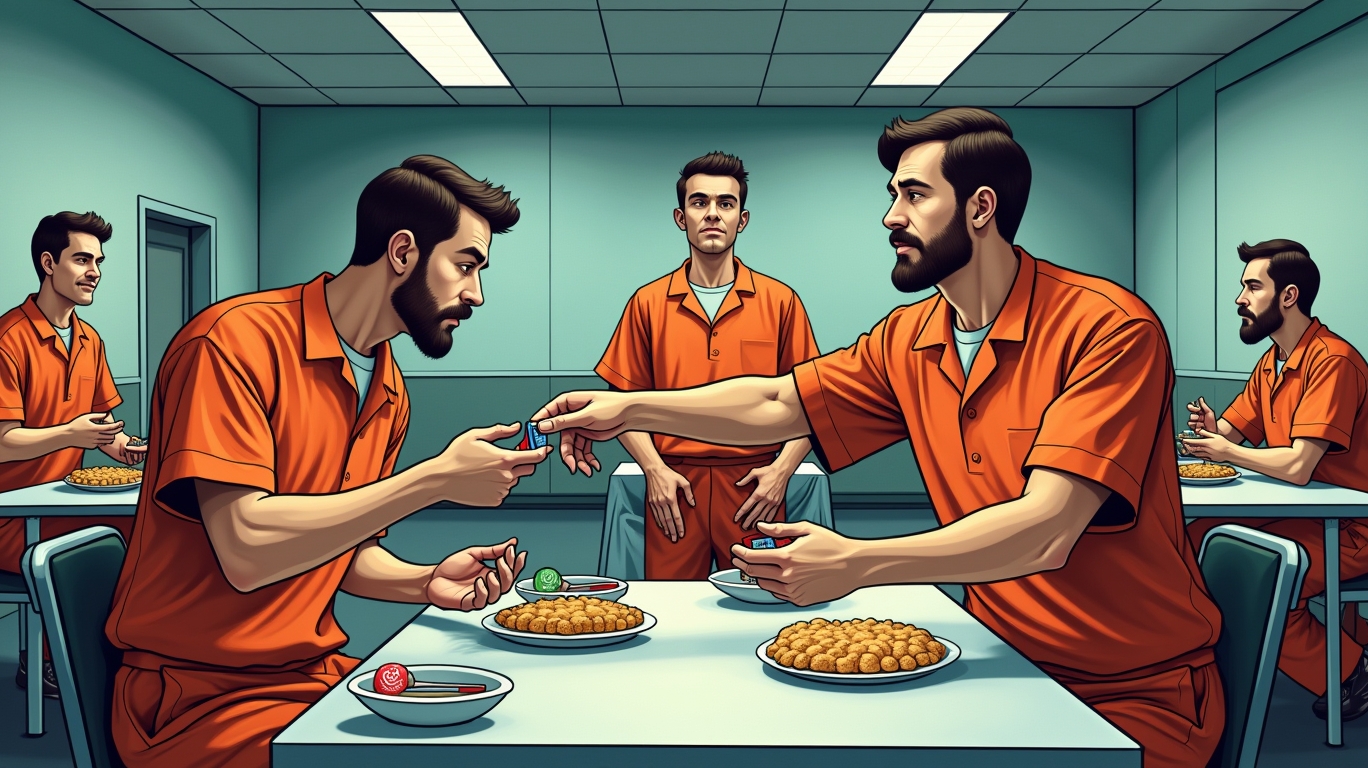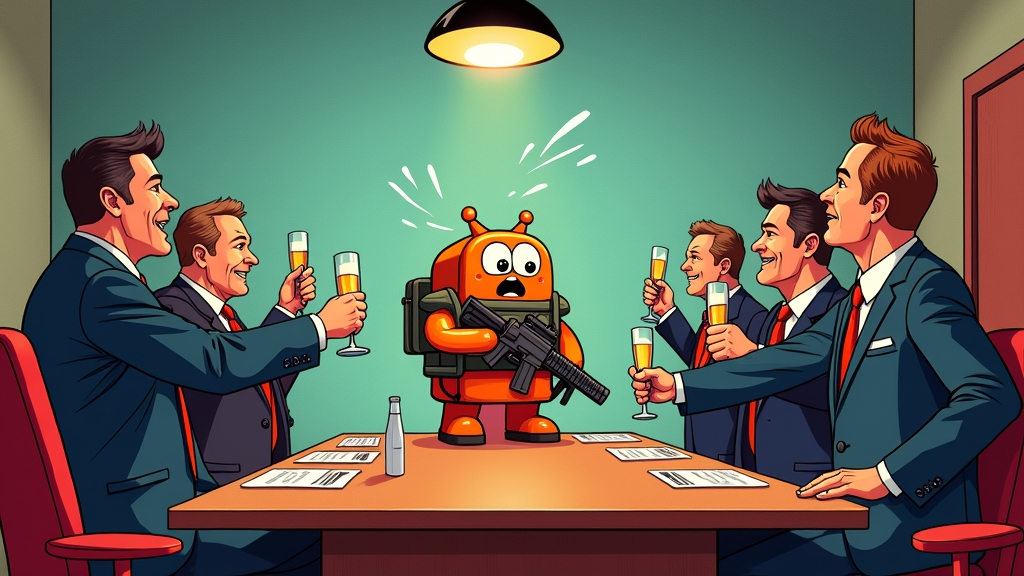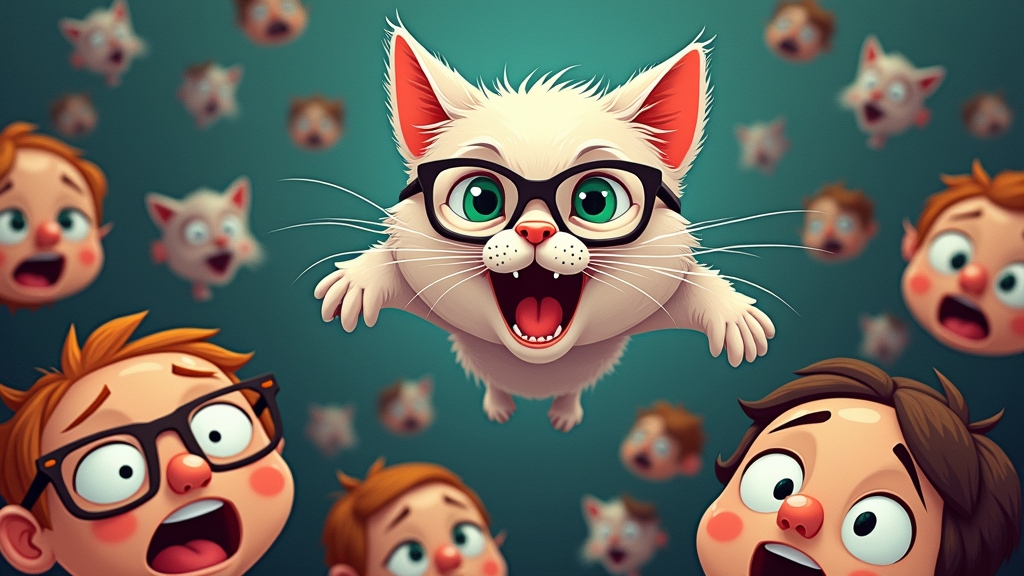OpenAI Investigates If Rival Chatbot Was Trained by ChatGPT or Just Whispered Inspirational Quotes During a Crisis
Silicon Valley darling OpenAI is clutching its metaphorical pearls and furiously flipping through its non-existent rulebook after alleging that some nefarious Chinese startups have been sneakily “borrowing” its precious AI technology. Apparently, the hottest new trend in the AI world isn’t crafting witty tweets, but “distillation” – a cutting-edge technique that might as well be called “copy-pasting for tech nerds.”
The drama centers around DeepSeek, a rival chatbot company accused of skipping the hard work of innovation in favor of raiding ChatGPT’s brain like a bad hacker movie. OpenAI, the ChatGPT maestro, said it’s conducting a “review” of the situation, which tech insiders know is code for “we’re sending passive-aggressive emails while sweating profusely in our $1,200 gaming chairs.” Partner-in-crime Microsoft, which poured $13 billion into OpenAI like a tipsy venture capitalist high on optimism, is also reportedly hand-wringing behind its state-of-the-art quantum servers.
In a deeply concerned public statement to no one in particular, OpenAI explained that Chinese startups are “constantly” making competing products based on its beloved models. By “constantly,” they presumably mean whenever they’re not busy wiping their hands with China’s GDP reports, building high-speed trains, or inventing alternative social media platforms that are somehow worse than Twitter.
Tech experts are calling the alleged use of distillation “unauthorized” – a term that translates to “how dare you use what we made in the open.” OpenAI claims the method lets rivals mimic the chatty charm of ChatGPT without putting in the actual R&D blood, sweat, and caffeinated tears. It’s essentially the digital equivalent of ordering dessert by saying, “I’ll just have what they’re having, but cheaper.”
OpenAI CEO Sam Altman, ever the PR wizard, reportedly told a group of developers, “Well, this is what happens when you create pioneering technology and don’t include a lock on the box.” Altman paused to shake hands with his shadow and added, “We really thought naming it ‘Open’ AI would throw them off—like reverse psychology. Clearly, they didn’t get the memo.”
DeepSeek, whose existence was previously about as well known as a band that plays exclusively on Thursdays at dive bars, has denied any wrongdoing. In an extremely bold move, they issued a statement claiming, “DeepSeek was born from a singular genius vision – inspired by ancient philosophy, cutting-edge algorithms, and old episodes of *Jeopardy!* We’ve never even *heard* of this alleged ChatGPT. In fact, what even *is* an OpenAI?”
Critics, meanwhile, are questioning whether OpenAI is more upset about the intellectual property issue or the fact that, for once, they don’t get to be the disruptor-in-chief. “OpenAI built a public beta and plastered it across the globe like it was the McDonald’s of chatbots, and now they’re surprised someone knocked it off?” said Frances Doolittle, a tech ethicist and professional curmudgeon. “What, did they think the world’s programmers were going to bow down and sing ‘Kumbaya’ while watching them rake in billions?”
Meanwhile, Microsoft is reportedly gearing up to slap DeepSeek with a lawsuit so big it will require its own data server just to store the paperwork. “We take intellectual property theft very seriously, and by ‘very seriously,’ we mean we’d like our $13 billion back please,” said one Microsoft spokesperson while absentmindedly stroking a copy of *The Art of War.*
Experts predict the case could spark an escalating game of tech cat-and-mouse, where both sides yell at each other through carefully-worded blog posts while scrambling to out-innovate or out-plagiarize each other. In the end, one thing’s for sure: this melodramatic feud will absolutely not affect the average consumer, who just wants to know which chatbot can write a passive-aggressive letter to their HOA the fastest.
As the scandal unfolds, one crucial question remains unanswered: should OpenAI just add watermarks to ChatGPT’s outputs or release the world’s first AI version of a loyalty punch card? “10 uses and you get a free existential crisis!” joked a rival startup CEO, probably before staring into the unforgiving void that is data optimization.
For now, OpenAI’s “review” continues, leaving the future of chatbot supremacy hanging by a thread – or, more likely, a really weak WiFi connection.





